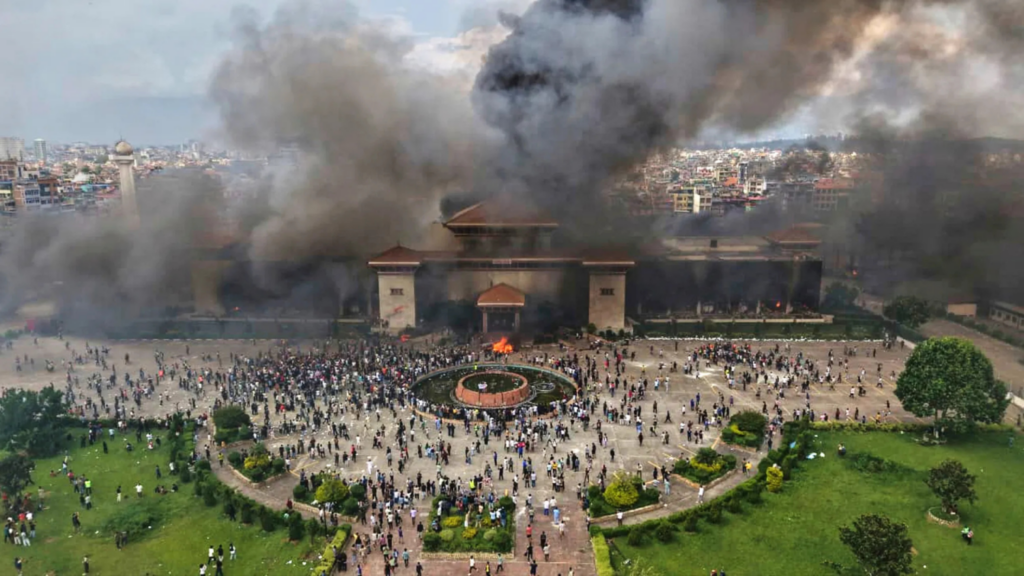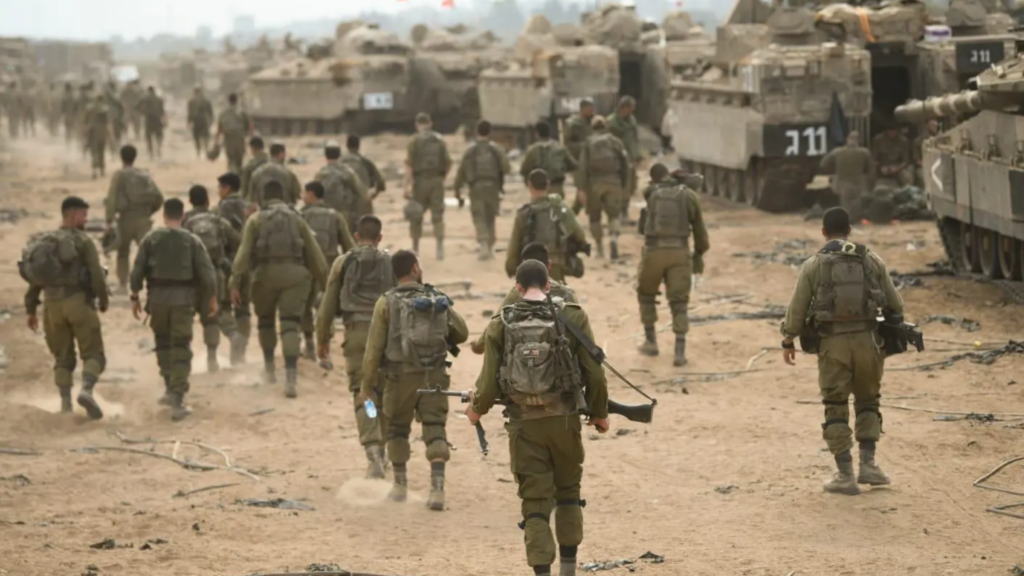India Charts Its Own Course as Middle East Conflict Strains SCO Cohesion
India charts its own diplomatic course: How the conflict in the Middle East has exposed underlying tensions within The Shanghai Cooperation Organisation that threaten to undermine the regional bloc.
When the Shanghai Cooperation Organisation (SCO), an international security bloc consisting of ten Eurasian member states, issued a statement strongly criticising Israel’s actions in the aftermath of Tel Aviv’s initial strikes on Iranian military and nuclear sites earlier this month, one influential country in the bloc raised eyebrows when it publicly distanced itself from the communiqué (Olander, 2025).
In contrast to the SCO’s other member-states (China, Belarus, Iran, Kazakhstan, Kyrgyzstan, Pakistan, Russia, Tajikistan and Uzbekistan) India did not participate in drafting the joint statement, a notable departure from the bloc’s usual efforts to portray a united front (Mollan, 2025). The SCO is a consensus-based organisation by design and a key component, along with the BRICS, of China and Russia’s efforts to establish an alternative international order to traditional western-led governance structures (Hing, 2025). These internal tensions within the bloc not only highlights the delicate diplomatic situation states are faced with vis-a-vis the conflict in the Middle East but also underlines the challenges that diverse organisations, like the SCO, face when confronting highly-volatile international issues.
New Delhi’s Multifaceted Approach
Given India’s much closer relationship with Israel than most other SCO members, New Delhi’s efforts to strike a nuanced diplomatic response to the conflict, in line with the country’s long standing pursuit of ‘strategic autonomy’, is not unexpected (Pillalamarri, 2025).
On the one hand, Indian Prime Minister Narendra Modi conveyed his “deep concern at the escalations” to Iranian President Masoud Pezeshkian in a call on 22nd June whilst also thanking the government in Tehran for the “safe return and repatriation” of Indian nationals from Iran (Roy, 2025). This cordial messaging stands in contrast to the close personal relationship reportedly shared by Modi and Israeli Prime Minister Benjamin Netanyahu with the two leaders calling to discuss the unfolding situation on 13th June, the first day of the conflict (Sharma, 2025).
Whilst New Delhi has refrained from overtly backing Tel Aviv’s military actions and called for the quick return of peace and stability to the region, on the 12th June India notably abstained on a UN General Assembly resolution adopted by 149 countries which called for an “immediate, unconditional and permanent ceasefire by all parties” in Gaza and a resumption in aid deliveries into the strip (Parashar, 2025).
This geopolitical posturing is primarily driven by India’s economic and security interests as whilst New Delhi’s trading relationship with Tehran has diminished in recent years, in part due to pressure from Washington, India’s economic ties with Israel remain relatively strong with bilateral merchandise trade reaching US$10.77 billion in 2022-23 (D’Souza, 2025). Moreover, despite New Delhi and Tehran signing a 10-year deal in May 2024 to develop the Iranian port of Chabahar with India seeking to access Central Asian markets and bypass Pakistan’s ports in Karachi and Gwadar, continued Western sanctions on Iran as well as neighbouring Afghanistan have undermined the project’s potential economic viability (Sebastian, 2024). Significantly too, India also remains the largest importer of Israeli armaments with New Delhi buying around US$2.9 billion of military equipment from Tel Aviv from 2014-2024, a dynamic that has reportedly remained unaffected by the ongoing conflict in Gaza (Kaushik, 2024).
As well as these fiscal and military considerations, Modi and Netanyahu’s governments have been geopolitical aligned on what the Israeli government has described as “India’s rightful fight against terrorism” with Tel Aviv amongst the first to express solidarity with New Delhi in the aftermath of Indian strikes in Pakistan as part of Operation Sindoor in May (Saltman, 2025). In stark contrast, India government hit out at an X post by Iran’s Supreme Leader as “misinformed and unacceptable” in September 2024 after the Ayatollah criticised Modi’s Hindu nationalist administration’s treatment of Muslims in the country (Al Jazeera, 2025).
With these underlying dynamics in mind as well as the close relationship between Washington and New Delhi, India’s nuanced diplomatic approach to the conflict in the Middle East is unsurprising, but it does have raised interesting longstanding questions about the viability of diverse international organisations when member states do not see eye-to-eye on important global issues.
Fissures Within the SCO?
Given the distinct (and often antagonistic) foreign policy outlooks held by the SCO’s diverse member states, chief among them being the chasm between Indian and Pakistani perspectives on security issues, the ability of the organisation to reach a consensus on highly-volatile geopolitical questions remains structurally limited. Even the Regional Anti-Terrorist Structure (RATS), a permanent body attached to the SCO to foster counterterrorism cooperation between the member states and arguably the organisation’s most effective function, has been mired by internal divisions with Pakistan, for example, disputing China, India and Russia’s designation of the Islamist extremist organisation Jaish-e-Mohammed as a ‘terrorist group’ (The New Indian Express, 2019).
These tensions have also come to the forefront again in recent days as India refused to sign a joint statement at the SCO defence ministers’ meeting in China on 26th June with New Delhi stating that the communiqué did not echo the country’s concerns regarding terrorism (Mollan, 2025). It has since been reported that the Indian government viewed the statement as being “pro-Pakistan” given its inclusion of Balochistan separatists in Pakistan and omission of the Pahalgam attack that killed 26 in Indian-administered Kashmir in April (Jeelani, 2025).
Whilst such fundamentally different nationalist outlooks can limit the effectiveness of multinational organisations, as can also be seen in the inaction of other regional blocs such as Russian-led Collective Security Treaty Organisation (CSTO) or the Association of Southeast Asian Nations (ASEAN), this does not mean multilateralism is a fool’s errand or altogether invaluable.
A diplomatic debate, even if it does not reach a consensus, is vital. The more inclusive international organisations become, the more difficult it is to reach an agreement, particularly when highly-controversial issues are on the agenda. That being said, while the SCO is highly unlikely to fragment as a result of these internal divisions, India’s diplomatic divergence from the organisation’s other member states on the US-Iran-Israel conflict bears watching as its reverberations become clearer in the months and years ahead.
Bibliography
Al Jazeera. (2025). India hits out after Iranian leader criticises treatment of Muslims. [online]. 17 Sep. Available at: https://www.aljazeera.com/news/2024/9/17/india-hits-out-after-iranian-leader-criticises-treatment-of-muslims
D’Souza, S.M. (2025). India’s Balancing Act in the Iran-Israel War: A Case for Peacemaking? The Diplomat. [online] 26 Jun. Available at: https://thediplomat.com/2025/06/indias-balancing-act-in-the-iran-israel-war-a-case-for-peacemaking/
Hing, S.L.S. (2025). The Shanghai Cooperation Organisation and International Politics. Macau News Agency. [online] 28 Jun. Available at: https://www.macaubusiness.com/opinion-the-shanghai-cooperation-organization-and-international-politics/
Jeelani, G. (2025). In China, Rajnath Singh refuses to sign SCO statement that skips Pahalgam, but mentions Balochistan. Mint. [online] 26 Jun. Available at: https://www.livemint.com/news/india/in-china-rajnath-singh-refuses-to-sign-sco-document-that-skips-pahalgam-but-mentions-balochistan-report-11750916005317.html
Kaushik, K. (2024). Israel’s military exports to top buyer India unaffected by Gaza War. Reuters. [online] 23 Feb. Available at: https://www.reuters.com/business/aerospace-defense/israels-military-exports-top-buyer-india-unaffected-by-gaza-war-2024-02-23/
Mollan, C. (2025). India refuses to sign joint statement at defence summit over Kashmir. The BBC. [online] 27 Jun. Available at: https://www.bbc.co.uk/news/articles/czxe48njkxwo
Olander, E. (2025). India Upset With SCO Over Statement Denouncing Israel. China Global South Project. [online] 16 Jun. Available at: https://chinaglobalsouth.com/2025/06/16/india-rebukes-sco-statement-israel-iran/
Parashar, S. (2025). India, 18 others abstain; 149 back UN resolution for Gaza ceasefire. The Times of India. [online] 14 Jun. Available at: https://timesofindia.indiatimes.com/india/india-18-others-abstain-149-back-un-resolution-for-gaza-ceasefire/articleshow/121839695.cms
Pillalamarri, A. (2025). The Iran-Israel War’s Geopolitical Implications for South Asia. The Diplomat. [online] 26 Jun. Available at: https://thediplomat.com/2025/06/the-iran-israel-wars-geopolitical-implications-for-south-asia/
Roy, S. (2025). PM Modi speaks with Iran President Masoud Pezeshkian reiterates call for ‘immediate de-escalation, dialogue’. The Indian Express. [online] 23 Jun. Available at: https://indianexpress.com/article/india/reiterated-call-for-immediate-de-escalation-pm-modi-dials-iran-president-after-us-strikes-tehran-10081470/
Saltman, M. (2025). India launches attacks on Pakistan after Kashmir massacre. CNN. [online] 7 May. Available at: https://edition.cnn.com/world/live-news/india-pakistan-attack-kashmir-tourists-intl-hnk
Sebastian, M. (2024). Chabahar Port: US says sanctions possible after India-Iran port deal. The BBC. [online] 14 May. Available at: https://www.bbc.co.uk/news/world-asia-india-68988190#:~:text=India%20had%20entered%20an%20agreement,in%20India%2DIran%20ties%22
Sharma, Y. (2025). Why India refused to join SCO condemnation of Israel’s attacks on Iran. Al Jazeera. [online] 16 Jun. Available at: https://www.aljazeera.com/news/2025/6/16/why-india-refused-to-join-sco-condemnation-of-israels-attacks-on-iran
The New Indian Express. (2019). Impossible for India-Pakistan to participate in SCO without unconditional fight against terror: SCO. [online] 21 Mar. Available at: https://www.newindianexpress.com/world/2019/Mar/21/impossible-for-india-pakistan-to-participate-in-sco-without-unconditional-fight-against-terror-sco-1954036.html



